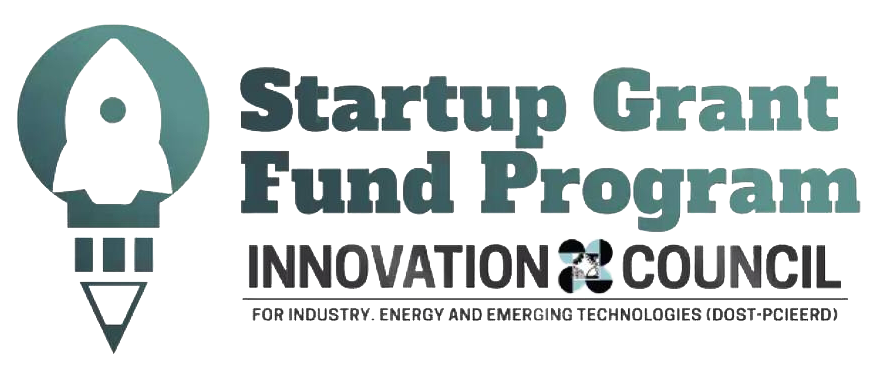The Business Process Outsourcing (BPO) industry remains one of the largest sectors in the Philippine economy, contributing significantly to GDP and providing employment for millions. The 4th quarter of 2024 marks a period of remarkable transformation for the industry as it adapts to emerging technologies, shifts in client expectations, and a global landscape that demands agility and resilience.

Industry Snapshot
As of the end of 2024, the BPO industry in the Philippines is worth approximately USD 35 billion, maintaining its status as a global leader in outsourcing, according to a Statista Study. The sector includes call centers, IT outsourcing, finance and accounting, healthcare, and more specialized fields. The country’s strong English proficiency, cultural adaptability, and cost-effective labor market continue to attract businesses worldwide.
Growth and Financial Performance
Revenue Growth
Despite economic uncertainties, the Philippine BPO industry recorded a steady growth rate in the 4th quarter, largely driven by increased demand for customer support, IT services, and back-office functions. According to industry reports, the sector is projected to grow by around 7% in annual revenue, with the strongest performance seen in digital and IT-enabled services.
Employment and Workforce Expansion
The BPO sector currently employs over 1.4 million Filipinos. With more companies expanding operations, employment in the sector is expected to increase by about 5% annually. The government and industry groups have made concerted efforts to address skill gaps, particularly in IT and digital skills, to support this growth trajectory.
Market Demand
Key markets for Philippine BPO services include the United States, Australia, the United Kingdom, and Canada. Increasing demand from Asian markets, particularly Japan and South Korea, has also contributed to recent growth. This diversified demand helps buffer the industry against potential downturns in specific regions.
Key Trends in the BPO Industry
Digital Transformation and Automation
The integration of digital technologies continues to be a major trend in the BPO industry. Companies are adopting automation, artificial intelligence (AI), and machine learning to improve efficiency and reduce costs.
- Robotic Process Automation (RPA): RPA is being used to handle repetitive, rule-based tasks, freeing up human employees for more complex functions. As of Q4 2024, approximately 40% of BPO companies in the Philippines have integrated some form of RPA.
- AI-Powered Chatbots and Virtual Assistants: These technologies are increasingly employed in customer service to handle simple queries, allowing human agents to focus on high-level inquiries.
The adoption of these technologies is reshaping the BPO workforce, creating demand for employees skilled in managing and interpreting AI and RPA systems.
Remote and Hybrid Work Models
In response to the post-pandemic shift in work dynamics, many BPO companies in the Philippines have embraced remote and hybrid work models. These models offer flexibility to employees, allowing companies to attract talent from diverse locations. This trend is particularly popular in sectors like IT services, where remote work is more feasible.
As of Q4 2024, approximately 30% of BPO employees work fully remote, while 50% are in a hybrid arrangement. This shift has also led to increased investments in digital infrastructure, cybersecurity, and employee training.
Focus on Data Privacy and Security
Data privacy remains a top priority for BPO companies, especially those handling sensitive customer information. Compliance with the Data Privacy Act of 2012 and international regulations like the General Data Protection Regulation (GDPR) is critical.
BPO firms are now investing heavily in cybersecurity measures to protect client data. This includes stronger encryption protocols, enhanced data access controls, and frequent employee training on cybersecurity best practices.
Upskilling and Reskilling Initiatives
The need for digital skills has prompted companies to invest in upskilling and reskilling programs. BPO firms are working closely with educational institutions and government agencies to develop training programs focused on IT, data analytics, digital marketing, and AI. Upskilling is helping employees adapt to new roles, especially as automation reduces the demand for traditional, low-skill tasks.
Shift Towards High-Value Services
The industry is seeing a shift from traditional call centers to high-value services, including finance and accounting, healthcare, and IT outsourcing. These segments offer higher revenue margins and are less susceptible to automation.
The Philippines has also gained traction as a destination for Knowledge Process Outsourcing (KPO), which involves specialized tasks like legal process outsourcing, research, and analytics. The KPO segment is expected to grow by 10% annually, driven by demand from international clients seeking advanced expertise.
Statistical Highlights for Q4 2024
- Total Industry Revenue: Approximately USD 35 billion
- Annual Revenue Growth Rate: 7%
- Total Employment: Over 1.4 million workers
- Projected Employment Growth Rate: 5% annually
- RPA Adoption Rate: 40% of BPO companies
- Remote Work Adoption: 30% fully remote, 50% hybrid
- Top Export Markets: United States, Australia, United Kingdom, Canada, Japan, South Korea
Challenges Facing the BPO Industry
Rising Operational Costs
While the Philippines remains a cost-effective destination, operational costs have been rising due to inflation and the need for better technology and cybersecurity. This is a growing concern for smaller BPO companies that may struggle to keep up with technological investments.
Talent Retention and Competition
With the global demand for tech talent increasing, BPO firms face challenges in retaining skilled employees, particularly those with expertise in IT, AI, and cybersecurity. Attractive offers from overseas companies are driving competition for top talent, making retention a priority for Philippine BPO firms.
Compliance with Evolving Regulations
Data protection laws are continuously evolving, both locally and internationally. Philippine BPO companies must keep up with these changes to maintain compliance and avoid penalties. Compliance with GDPR, for instance, is necessary for BPOs handling data from European clients.
Infrastructure and Connectivity Issues
While metro areas like Metro Manila and Cebu have robust connectivity, rural areas still face connectivity challenges. With the shift towards remote work, reliable internet access and digital infrastructure are critical. Government initiatives to improve nationwide connectivity are underway, but challenges remain.
Government Initiatives and Support
The Philippine government has been instrumental in supporting the BPO industry’s growth. Key initiatives include:
- Training Programs: Government-funded training programs to address skill gaps in technology and digital services.
- Incentives for BPO Investments: PEZA (Philippine Economic Zone Authority) offers tax incentives for BPOs operating in economic zones. These benefits encourage both local and foreign investments.
- Infrastructure Projects: The government’s “Build, Build, Build” infrastructure program aims to improve connectivity, particularly in rural areas, enabling more widespread adoption of remote work.
Future Outlook for the BPO Industry in the Philippines
The outlook for the Philippine BPO industry remains positive, with projected growth driven by demand for digital transformation services and high-value outsourcing. Key trends that are expected to shape the industry over the next few years include:
Continued Investment in Automation and AI
The trend toward automation and AI integration will likely accelerate, making BPO operations more efficient and cost-effective. Companies will continue to invest in these technologies to meet client demands for high-quality, round-the-clock services.
Expansion of High-Value and Specialized Services
The demand for specialized services, including healthcare, legal, and financial outsourcing, is expected to grow. Philippine BPO firms will likely expand their service offerings in these areas, enhancing the industry’s global competitiveness.
Increased Focus on Sustainability and Corporate Social Responsibility (CSR)
Sustainability is becoming a priority for many global clients, and Philippine BPOs are starting to adopt CSR and environmental initiatives. These efforts include reducing carbon footprints, implementing green office practices, and supporting local communities.
Government and Private Sector Collaboration
Strong collaboration between the government, private sector, and educational institutions will play a critical role in addressing skill gaps and maintaining the industry’s competitive edge. Industry stakeholders are working together to ensure the Philippines remains a top outsourcing destination.

Ultimately…
The 4th quarter of 2024 has proven to be a period of resilience and adaptability for the BPO industry in the Philippines. With sustained growth, technological advancements, and government support, the industry is well-positioned for future success. By focusing on upskilling, embracing digital transformation, and expanding into high-value services, the Philippine BPO sector will continue to thrive in an increasingly competitive global market.
Despite challenges, the industry’s adaptability and the country’s supportive ecosystem promise a bright future for BPO in the Philippines. As global companies continue to seek reliable outsourcing solutions, the Philippines is set to retain its place as one of the world’s premier BPO destinations.









